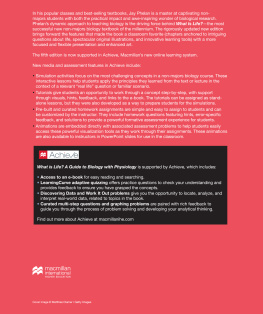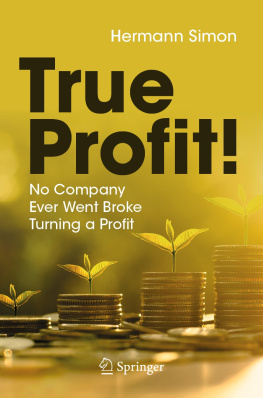Karen Phelan - I'm Sorry I broke Your Company
Here you can read online Karen Phelan - I'm Sorry I broke Your Company full text of the book (entire story) in english for free. Download pdf and epub, get meaning, cover and reviews about this ebook. City: San Francisco, year: 2013, publisher: Berrett-Koehler Publishers, genre: Business. Description of the work, (preface) as well as reviews are available. Best literature library LitArk.com created for fans of good reading and offers a wide selection of genres:
Romance novel
Science fiction
Adventure
Detective
Science
History
Home and family
Prose
Art
Politics
Computer
Non-fiction
Religion
Business
Children
Humor
Choose a favorite category and find really read worthwhile books. Enjoy immersion in the world of imagination, feel the emotions of the characters or learn something new for yourself, make an fascinating discovery.

- Book:I'm Sorry I broke Your Company
- Author:
- Publisher:Berrett-Koehler Publishers
- Genre:
- Year:2013
- City:San Francisco
- ISBN:978-1-60994-740-8978-1-60994-741-5
- Rating:4 / 5
- Favourites:Add to favourites
- Your mark:
- 80
- 1
- 2
- 3
- 4
- 5
I'm Sorry I broke Your Company: summary, description and annotation
We offer to read an annotation, description, summary or preface (depends on what the author of the book "I'm Sorry I broke Your Company" wrote himself). If you haven't found the necessary information about the book — write in the comments, we will try to find it.
I'm Sorry I broke Your Company — read online for free the complete book (whole text) full work
Below is the text of the book, divided by pages. System saving the place of the last page read, allows you to conveniently read the book "I'm Sorry I broke Your Company" online for free, without having to search again every time where you left off. Put a bookmark, and you can go to the page where you finished reading at any time.
Font size:
Interval:
Bookmark:
Karen Phelan
Im Sorry I Broke Your Company
When Management Consultants Are the Problem, Not the Solution
Preface
I'm sorry. I really am. Does it help if I say I meant well? To be honest, though, its not entirely my fault. Were all victims of a flawed business model. What happens when you hire new employees fresh out of prestigious business schools? What are they good at? Performing logical analyses, learning models and theories and applying them, and creating new models and theories. What are they most lacking? Real-world experience. So how were we to know that the models and theories were wrong? They were elegant and logical, and based on our experience with models and theories, that's the mark of excellence. Fortunately, I was a little bit different from the rest. My degrees were in engineering and science, and I had a brief foray into a scientific career in a military laboratory before becoming a consultant. I knew a little about real-world results not matching the theories. But I must say, I was as gullible as the next consultantat first.
Unfortunately, few statistically sound, well-managed studies prove the accuracy of management theories. Management theories rarely get peer-reviewed or validated by a third party before they become part of the accepted body of knowledge. Most of the evidence is anecdotal, and many of the existing studies have a degree of self-interest. (How many companies will admit that their multimillion-dollar restructuring effort had few benefits?) So I am going to tell you about my personal journey of enlightenment, where during a thirty-plus-year career as a management consultant and manager in Fortune 100's, I slowly and steadily realized that many of our management theories are wrong.
On behalf of all the management consultants who've been working in your companies over the last three decades, proselytizing about management by objectives and competitive strategy, I apologize. I'm sorry I broke your company.
Introduction
Most people, if not all, have a hidden talentsome goofy or useful ability that they share with few other humans. I once met a woman with an uncanny ability to call coin tosses. I know another woman who can mimic the tones of a telephone and get her voice mail without pressing buttons. My older son can manipulate three-dimensional images of objects in his mind. When we built models together, I noticed that he built his in his head first. My younger son converses in his sleep. I don t mean he utters random words or phrases. You can have an entire conversation with him while he is sleeping. My husband can dead reckon anywhere through the woods. If you ever need to get out of the woods quickly, he can navigate a path without a GPS and get you within one hundred feet of your car. I have a skill, too. I realized exactly what it was only a few years ago.
In 2006 I attended a Sloan School class on systems dynamics. Our first task was to break into teams and play the beer distribution game, a simulation of the supply chain of a beer manufacturer. The game illustrated the bullwhip effect, a phenomenon well-known to people who work in supply chains. The effect shows that small variations at one end of the chain can become amplified along the chain, resulting in large variations at the other end. A few minutes into the game, I realized what was going on and figured out the correct order quantities while the rest of the class struggled. I am familiar with supply-chain problems, so I thought little of it. However, in problem after problem, the answer was just plainly obvious to me. While everyone else was documenting cause-and-effect loops, I thought about the problems and found the answers. My classmates marveled at my ability, and I became something of a phenomenon. Only I felt like a fraud. Yes, I could solve all the systems problems in my head in a few minutes, but I didn't have a remarkable computer-like ability to solve systems problems. My talent is empathybeing able to put myself in someone else's shoes.
With each problem, I immersed myself in the situation and pretended I was there, making decisions as the various actors until I found the one that worked. How I really differed from everyone else in the class, including the instructor, was that I knew these problems weren't about supply chains, factory maintenance, improvement initiatives, or construction schedules. They were about people reacting to circumstances. Every business problem is about people reacting to circumstances.
Textbooks, consultants, and experts blame the bullwhip effect on forecast errors, unpredictable demand, poor information, poor inventory management, and so on. What they don't mention is that the bullwhip effect is primarily caused by emotions. It is caused by fear when demand falls off slightly, and people become scared and order less and less all along the chain. It is caused by optimism when demand increases slightly, and people hope demand grows and worry that they won't have enough supply so they order too much. It is caused by mistrust as each person adds to or subtracts from his order to cover his ass if the supplier can't ship as planned or the customer changes her mind. The only way to eliminate the bullwhip effect is to eliminate the fear, hope, and mistrust of the people ordering inventory.
I wrote this book because, after a thirty-year-long career, I am tired of pretending. Ive had to do a lot of pretendingpretending that the inventory management system I am implementing is the answer when I am really getting each part of the supply chain to trust each other, pretending to reengineer the new product development process when I am really getting the Sales, Marketing, and Research and Development (R&D) Departments to work together better, pretending that my amazing ability to solve problems is due to computer-like thinking rather than human-like imagining. Most of all, I am tired of seeing employees treated as assets that need to be monitored, measured, standardized, and optimized. I cant be honest about what I do because no one would buy my services if I said that I help people work together better. Instead, I pretend to sell methodologies, models, metrics, processes, and systems.
As a young consultant, I created many models, processes, and programs, all with the purpose of taking the variability out of tasks, the emotions out of decisions, and the judgment out of management. In short, I was trying to eliminate the human element from running a business. I was not alone. Over the last two decades, management methods have proliferated and embedded themselves as corporate best practices with the goals of improving efficiencies, standardizing skills, and optimizing performance. Balanced scorecards, pay for performance, core competence development, process reengineering, leadership assessments, management models, competitive strategy, and cascading performance measures are some of the models that are now entrenched in business management, even though there is little evidence that they work as advertised. All these models and theories attempt to dehumanize the workplace, and they have succeeded, though not as intended. People are treated like machines that have to be maximized until they break, and all their unique and goofy talents never see the light of day.
We have been led to believe by management gurus and management consultancies that businesses are logical and run by the numbers and that their models and theories will provide step-by-step instructions on how to succeed. Companies try to implement these models or make decisions strictly by the numbers and never realize the expected successes because businesses are not actually rational. Human assets are not a part of a business. If you take away the human assets, you don't have a business, just a bunch of offices and equipment that cant do anything. Businesses are people irrational, emotional, unpredictable, creative, oddly gifted, and sometimes ingenious people who don't operate according to the theories. This book is a reminder that we need to stop trying to dehumanize the workplace and that if you manage the people element, you pretty much have everything covered. This book is intended for consultants, people who hire consultants, nonconsultants, and anyone who is tired of pretending that modern management practices work. If you have ever been at work and wondered if everyone else was insane, you are not alone. I wrote this book for you.
Font size:
Interval:
Bookmark:
Similar books «I'm Sorry I broke Your Company»
Look at similar books to I'm Sorry I broke Your Company. We have selected literature similar in name and meaning in the hope of providing readers with more options to find new, interesting, not yet read works.
Discussion, reviews of the book I'm Sorry I broke Your Company and just readers' own opinions. Leave your comments, write what you think about the work, its meaning or the main characters. Specify what exactly you liked and what you didn't like, and why you think so.









